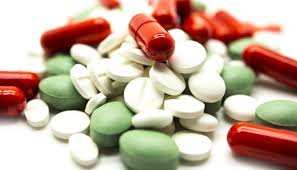By David Dunaief, M.D.
I’m sure we all can agree that type 2 diabetes is an epidemic that needs to be discussed again. Again, because this disease is just not going away. There are a number of different drug classes to treat diabetes, and these classes keep on growing in number and diversity; each has its merits and drawbacks. Since there are so many drugs and drug classes, you will need a scorecard to keep track.
When we talk about this disease, the first thing that comes to mind is glucose levels, or sugar, which is what defines having diabetes. However, we are going to look beyond the sugars to the nonglycemic effects.
What do I mean by this? There seems to be a renaissance occurring where there is a focus in drug trials on the treatment of diabetes complications rather than just the lowering of sugars. Some of the complications that we will investigate include cardiovascular disease and nonalcoholic fatty liver disease (NAFLD). Several drugs may reduce the risk of cardiovascular disease (CVD) mortality. Diabetes patients who have cardiovascular disease are more likely to die about 12 years prematurely (1). However, new research suggests that relatively new diabetes drugs reduce the risk of CVD mortality. These include empagliflozin (Jardiance), a sodium-glucose cotransporter 2 (SGLT2) inhibitor, and liraglutide, a glucagon-like peptide-1 (GLP1) receptor agonist. There is also a third, older drug that has shown CVD risk benefit, metformin. Though these drugs are not without their caveats. Liraglutide has also been shown to potentially reduce the risk of nonalcoholic fatty liver disease.
In fact, the American College of Physicians has recently updated its recommendations on the treatment of type 2 diabetes with oral medications (2). The first line continues to be metformin, the tried and true. The favored second-line drugs to add to metformin may be the SGLT2 cotransporter inhibitors, such as empagliflozin, or DPP-4 inhibitors, such as sitagliptin. The sulfonylureas class, such as glimepiride, and thiazolidinediones class, such as pioglitazone, are also consider second line but not as favorable. GLP1 receptor agonists, such as liraglutide, are not on the list, since they are injectable medications. There are always downsides to drug therapy, and diabetes drugs are no exception. Drawbacks include expense with newer drugs, as well as adverse side effects with all of these drugs, new and old. Though empagliflozin has been shown to reduce CVD mortality, others in the same class have been shown to increase the risk of acute kidney failure.
Before I go any further, I want to state that lifestyle modifications including a plant-based diet and exercise are likely the most powerful tools we have in treating, preventing and reversing diabetes. So, I am not a proponent of diabetes drugs. But, there are many patients who could and do benefit from drug therapy. Lifestyle modifications should always be a significant component whether on drugs or not. Recently, plant-based diets were ranked highly for treating and preventing diabetes in U.S. News and World Report, with the DASH (dietary approach to stop hypertension) diet ranked number one and the Mediterranean diet number two (3), although rankings are not the be-all and end-all. Let’s look at the evidence.

Drug benefit on cardiovascular disease
As I mentioned, there are two new drugs, empagliflozin and liraglutide, and one older drug, metformin, that have shown potentially beneficial effects on the macrovascular portion of diabetes treatment and prevention — cardiovascular disease. For the longest time, most diabetes drug trials were focused only on reducing sugars, not on clinical end points.
Empagliflozin
In a the EMPA-REG OUTCOME trial, a randomized, double-blind, placebo-controlled trial, results showed that empagliflozin reduces the risk of cardiovascular mortality (heart attack or stroke) by a relative 38 percent compared to placebo in patients with type 2 diabetes and cardiovascular disease (4). There was also a 32 percent reduction in all-cause mortality compared to the placebo group. Two different doses of empagliflozin were used with similar results, 10 mg and 25 mg once a day. There were 7,020 patients with a duration of 3.1 years. Most of those in the placebo arm were on statin (cholesterol) drugs, ACE inhibitors (blood pressure medication) and aspirin.
The FDA approved this drug for the prevention of heart attacks and strokes in diabetes patients with known cardiovascular disease (5). However, the FDA advisory board only narrowly recommended the drug for this label (6). The label change is based on one trial, and the mechanism for CVD mortality reduction is unclear. However, there are several pitfalls to this study. Empagliflozin was compared to placebo, rather than the usual standard of care, and these patients had cardiovascular disease, which means that we don’t know if the benefit actually holds true in those without CVD. Interestingly, the placebo group’s HbA1C was 8.2 percent at the trial’s end, while the treatment group was reduced to 7.8 percent, neither of which is considered controlling the sugar levels. The treatment group saw a 0.5 percent reduction in HbA1C, which is not overwhelming.
In terms of adverse reactions, empagliflozin increases the risk of urinary tract infections and diabetic ketoacidosis, since sugar is excreted through the urine. In fact, the FDA warned that two drugs from the same class as empagliflozin increase the risk of acute renal failure. These are canagliflozin (Invokana) and dapagliflozin (Farxiga) (5).
Liraglutide
In the LEADER trial, a randomized controlled trial, results showed that liraglutide 1.8 mg subcutaneous injection daily decreased the risk of CVD mortality by a significant 22 percent compared to placebo plus standard care after 3 years (7). This is the highest tolerated dose. This trial involved over 9,000 type 2 diabetes patients at high risk for CVD. Liraglutide also showed a 2.3-kg (5-lb) weight reduction and 0.4 percent HbA1C drop compared to placebo by the 3-year mark. The duration of trial was 3.5 to 5 years. The most significant side effects were gastrointestinal and increased heart rate. In another study, results showed that liraglutide reduced the liver fat in 57 NAFLD patients who were not adequately controlled on metformin, insulin or sulfonylureas (8). After six months, the liver fat in these patients decreased by 33 percent. The patients also lost almost 8 lb of weight and reduced HbA1C by 1.6 percent from 9.8 to 7.3.
Metformin
In a retrospective (backward-looking) study of over 250,000 diabetes patients, there was a greater than 40 percent reduction in cardiovascular events or mortality with metformin compared to sulfonylureas (9). However, a retrospective study is not the most reliable.
Triglyceride-lowering drug reduces CVD
Fenofibrate, which had been shown not to be of benefit, may actually help reduce CVD in a specific group of diabetes patients. In a recent analysis of the ACCORDION trial, a subset of data suggests that diabetes patients with triglycerides >204 mg/dL and HDL <34 mg/dL, when treated with fenofibrate in addition to statins, saw a 27 percent significant reduction in cardiovascular events (10). This was an observational study that requires confirmation with a randomized controlled trial. Thus, there may be a use, though a narrow one, for fenofibrate.
It is potentially exciting that drugs may reduce cardiovascular mortality in diabetes patients. If you do chose one or more of these drug therapies after discussing it with your physician, remember these drugs are in addition to continuing to work on diet and on exercise — the cornerstone of therapy.
References: (1) JAMA. 2015;314(1):52-60. (2) Ann Intern Med. online Jan. 3, 2017. (3) usnews.com. (4) N Engl J Med 2015; 373:2117-2128. (5) FDA.gov. (6) Medscape.com. (7) N Engl J Med 2016; 375:311-322. (8) J Clin Endocrinol Metab. Online Oct. 12, 2016. (9) Ann Intern Med. 2012 Nov. 6;157(9):601-610. (10) JAMA Cardiology online Dec. 28, 2016.
Dr. Dunaief is a speaker, author and local lifestyle medicine physician focusing on the integration of medicine, nutrition, fitness and stress management. For further information, visit www.medicalcompassmd.com or consult your personal physician.





